Oral Health for Babies and Infants 0 to 3 years
Tooth decay is preventable.
Follow the advice on this page to keep your baby's teeth healthy and visit the HABIT website here for more activities and helpful tips. Created with families and Health Visitors in West Yorkshire, the HABIT website includes additional activities and helpful tips for keeping your baby's teeth healthy.
Why do I need to look after my baby's teeth?
- Children's first teeth (baby teeth) are very important for eating, drinking, talking and smiling.
- Baby teeth are important to guide the adult teeth into the right position. If they are lost early, then the spaces for the adult teeth can be lost. The adult teeth may come through crooked.
- Tooth decay can cause pain, infection, sleepless nights, time off nursery or school and time off work for parents and carers.
- Small children often need a general anaesthetic to have decayed teeth removed. Tooth decay is the most common reason for 6 to 10 years olds to be admitted to hospital.
- You can help stop tooth decay so your child has a healthy smile for life.
Brushing your baby's teeth
- Brush with a toothpaste containing at least 1000 ppm fluoride (this will be on the toothpaste tube).
- Only use a smear of toothpaste.
- After brushing, wipe any toothpaste from outside the mouth. Don't rinse.
- Start to brush your baby's teeth as soon as their first tooth appears.
- Brush your baby's teeth last thing before bedtime and one other time in the day.
- Brush all sides of each tooth, don't forget the ones at the back.


Eating and drinking
 Milk and water are safer drinks for teeth
Milk and water are safer drinks for teeth- Many baby foods and drinks are high in sugar
- Keep sugary foods and drinks to meal times only.
- Avoid sugary foods and drinks 1 hour before bedtime.
Healthy snacks include:
 Banana
Banana- Cucumber sticks
- Bread sticks
- Roti
- Toast with butter
- Milk
- Vegtables
- Plain yoghurt
- Rice cakes
Visiting the dentist
Dental care is free for pregnant mothers and for 12 months after your baby is born.
Visit as soon as your baby's first tooth appears. To help look after your baby's teeth, your dentist may apply a fluoride paste or varnish.
Dental care for children is free.
To find an NHS dentist near you, visit the NHS website.
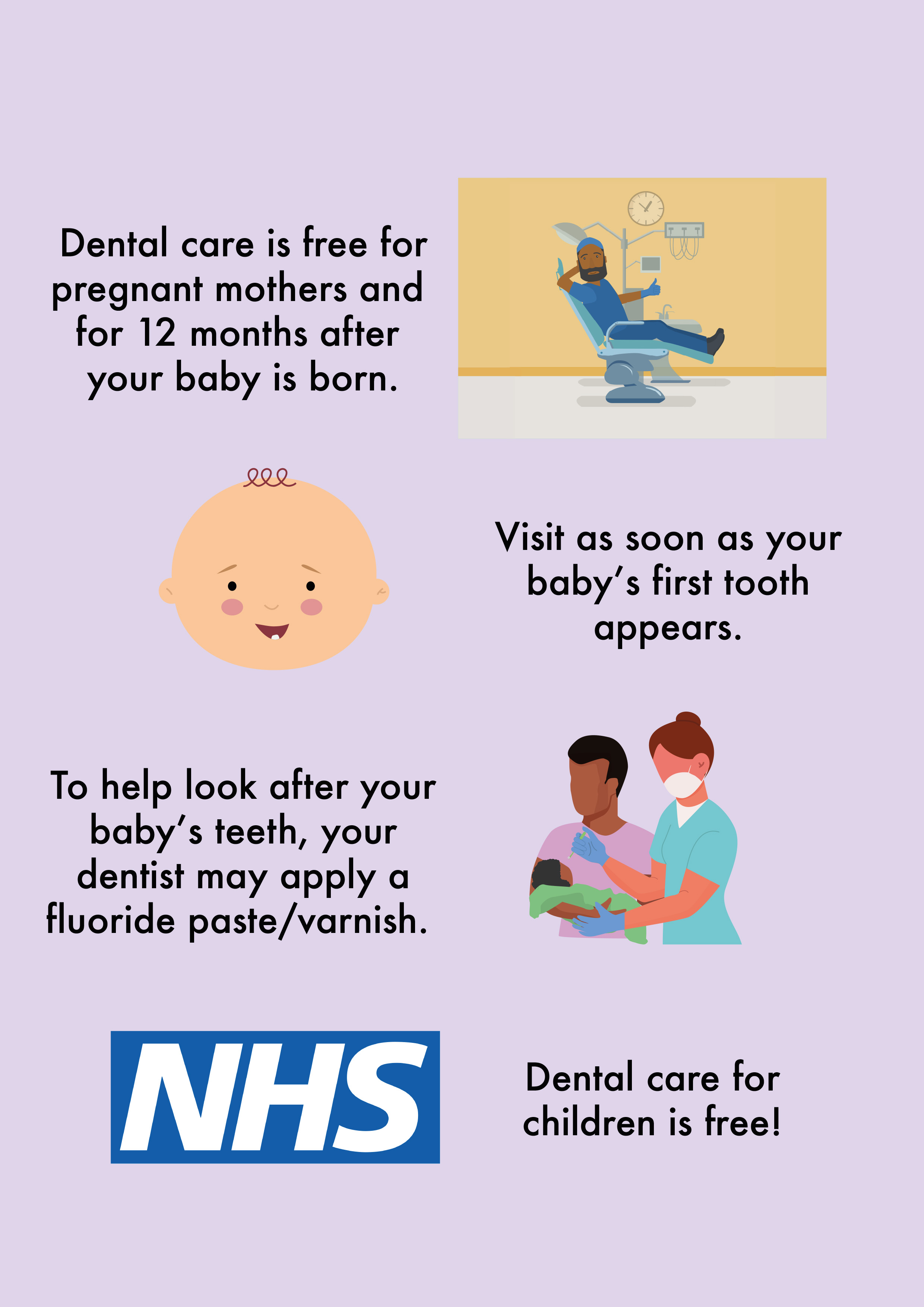
Family and friends
- Show the HABIT leaflet to family and friends who look after your baby.
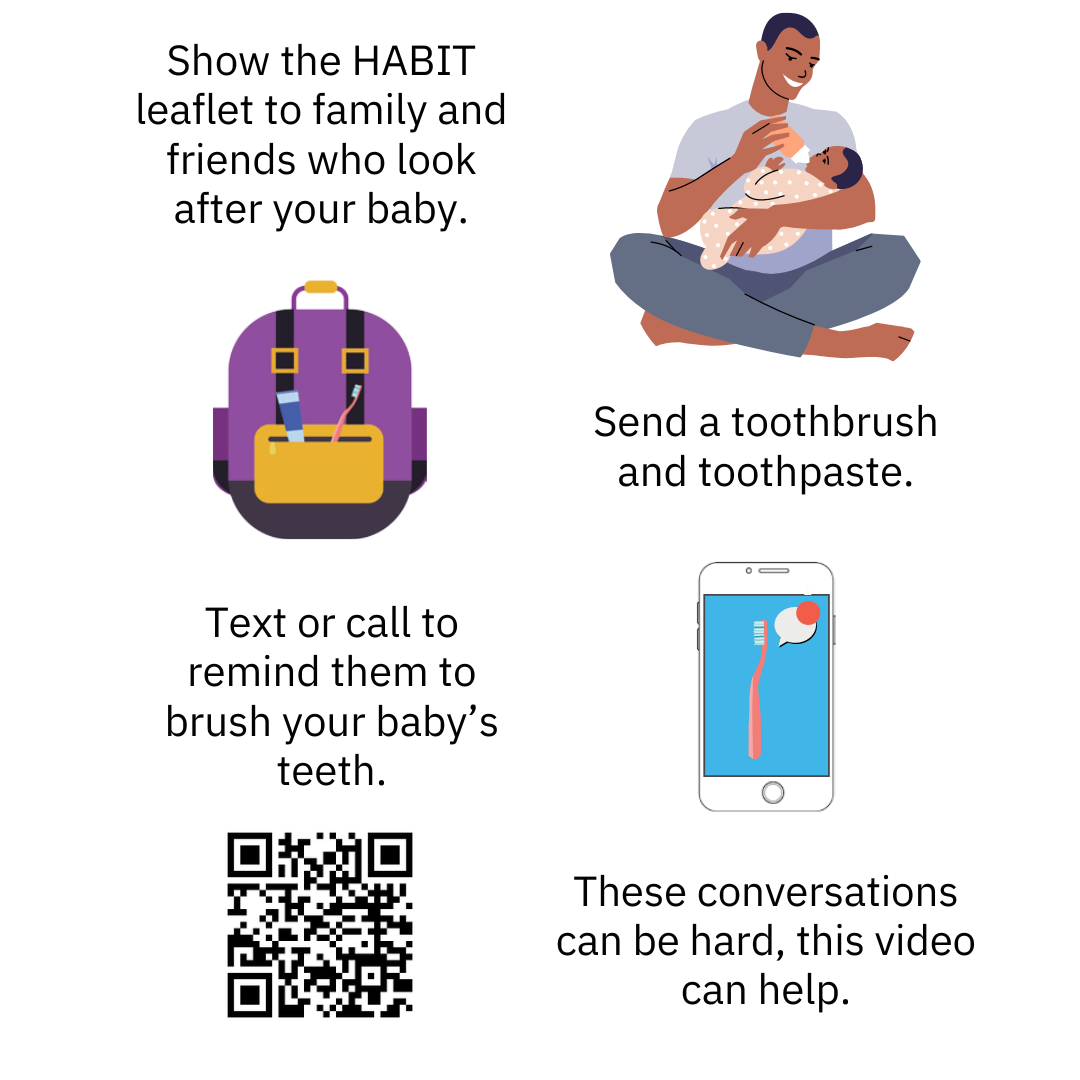
- Send a toothbrush and toothpaste with your baby's things.
- Test or call to remind them to brush your baby's teeth.
- These conversations can be hard, the video below can help.
Making brushing easy and fun
Brushing your baby's teeth can be difficult, you are not alone. Some brushing is better than none, dont give up!
Use rewards like singing and clapping to make brushing fun.
If you need help, speak to your health visitor or dental team.
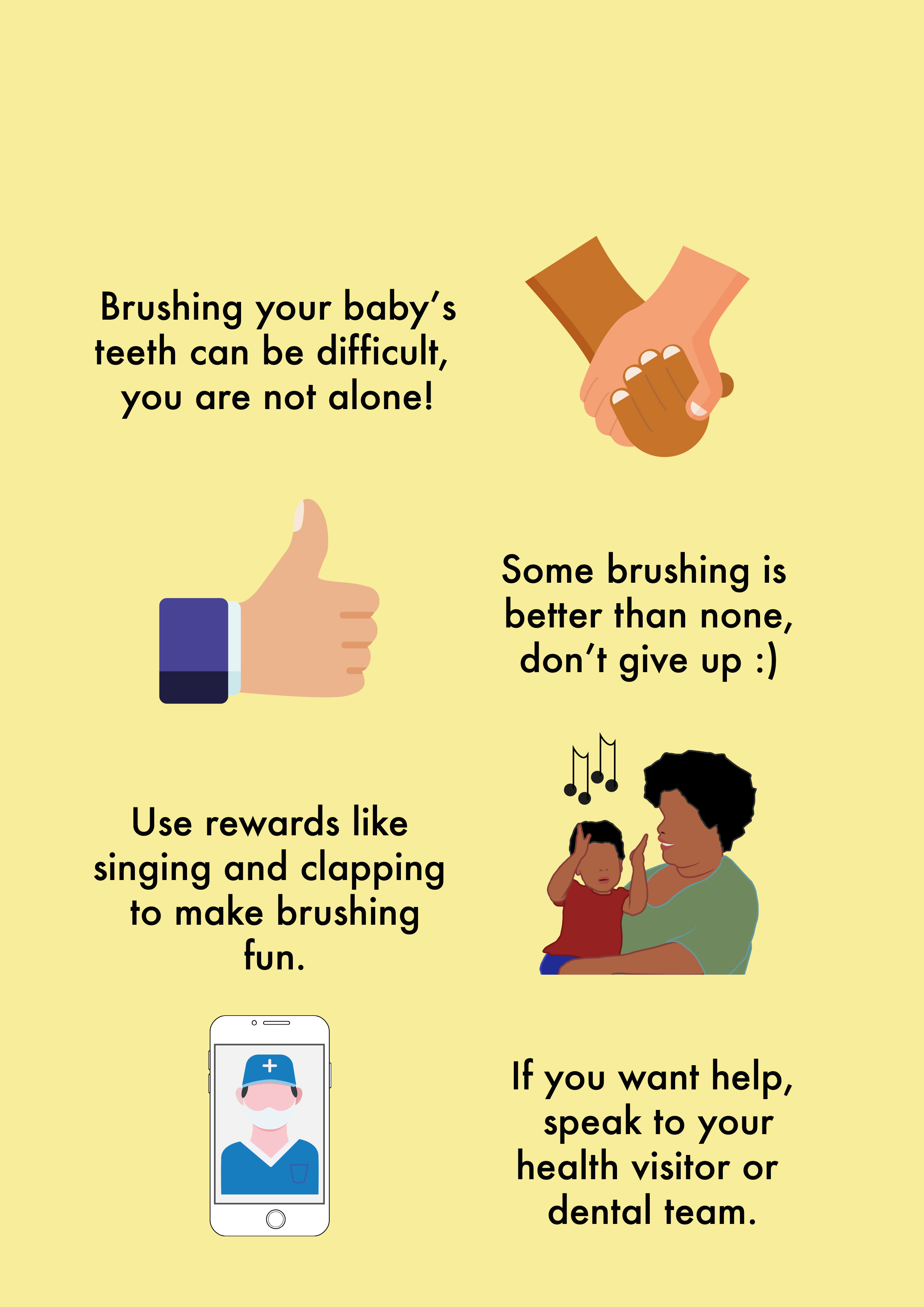
Dummies and thumb sucking
- Avoid using dummies after 12 months of age.
- Don't dip dummies in anything sweet like sugar or jam.
- Your child's speech can be affected by dummies and thumb sucking.
- Dummies and thumb sucking can cause a gap between the top and bottom teeth.
- Do not let your child run around or talk with a dummy or thumb in their mouth.
- Never suck your baby's dummy to clean it. This can spread germs.
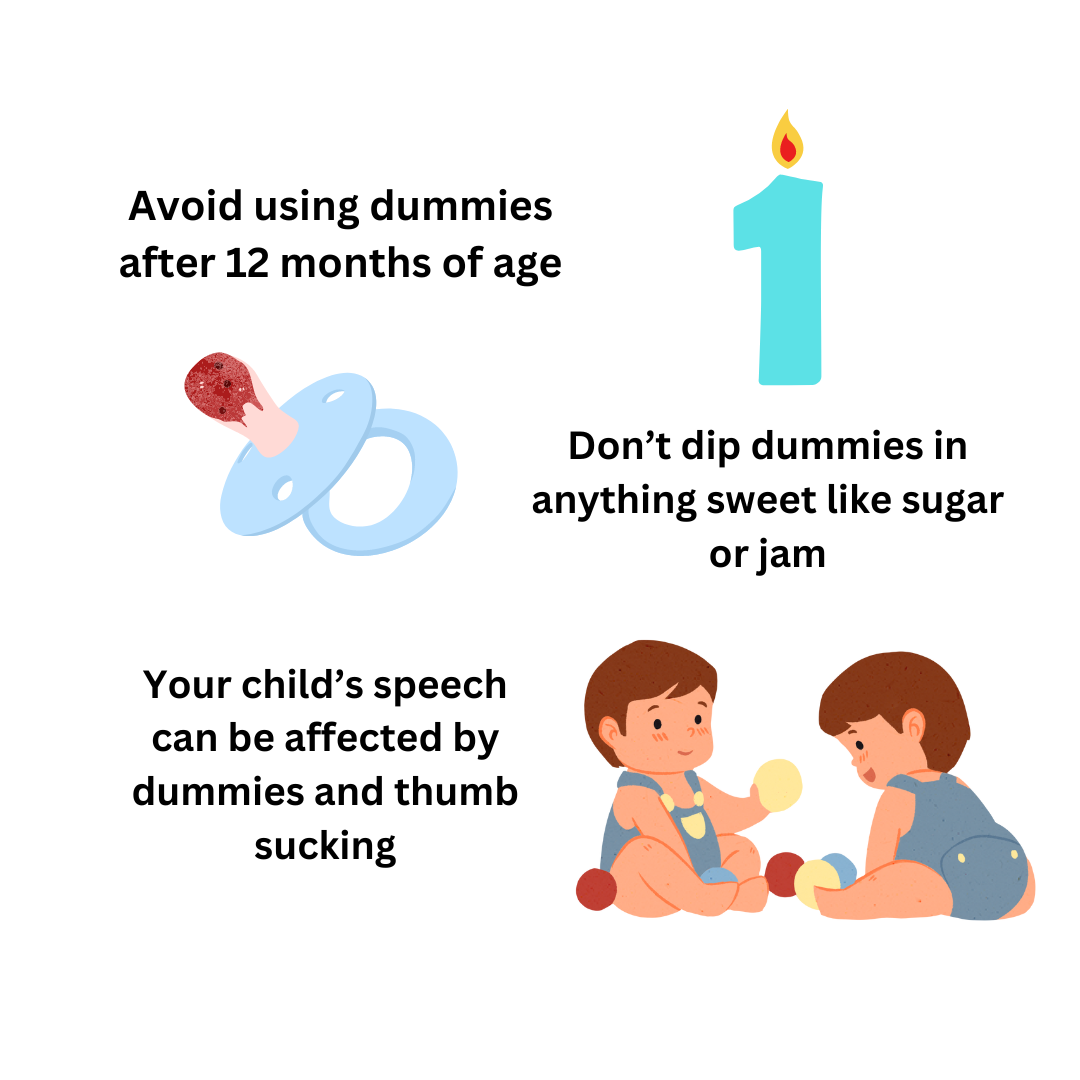
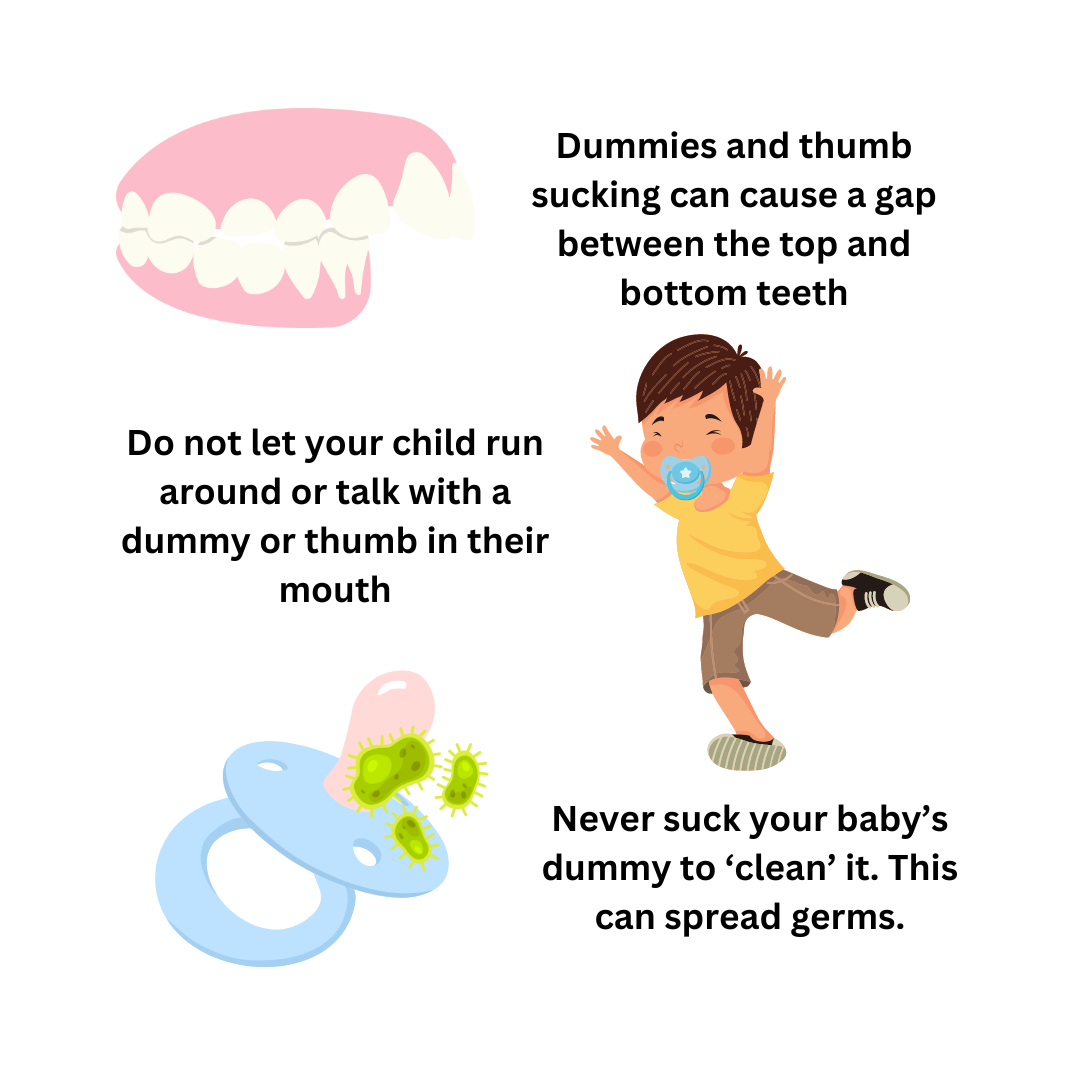
Teething
The first teeth (baby teeth) to appear are usually the bottom front teeth (incisors) at around 5 to 7 months of age, followed by the top front teeth.
Your child should have 20 baby teeth by the time they are 2 and a half years old.
Signs of teething may include:
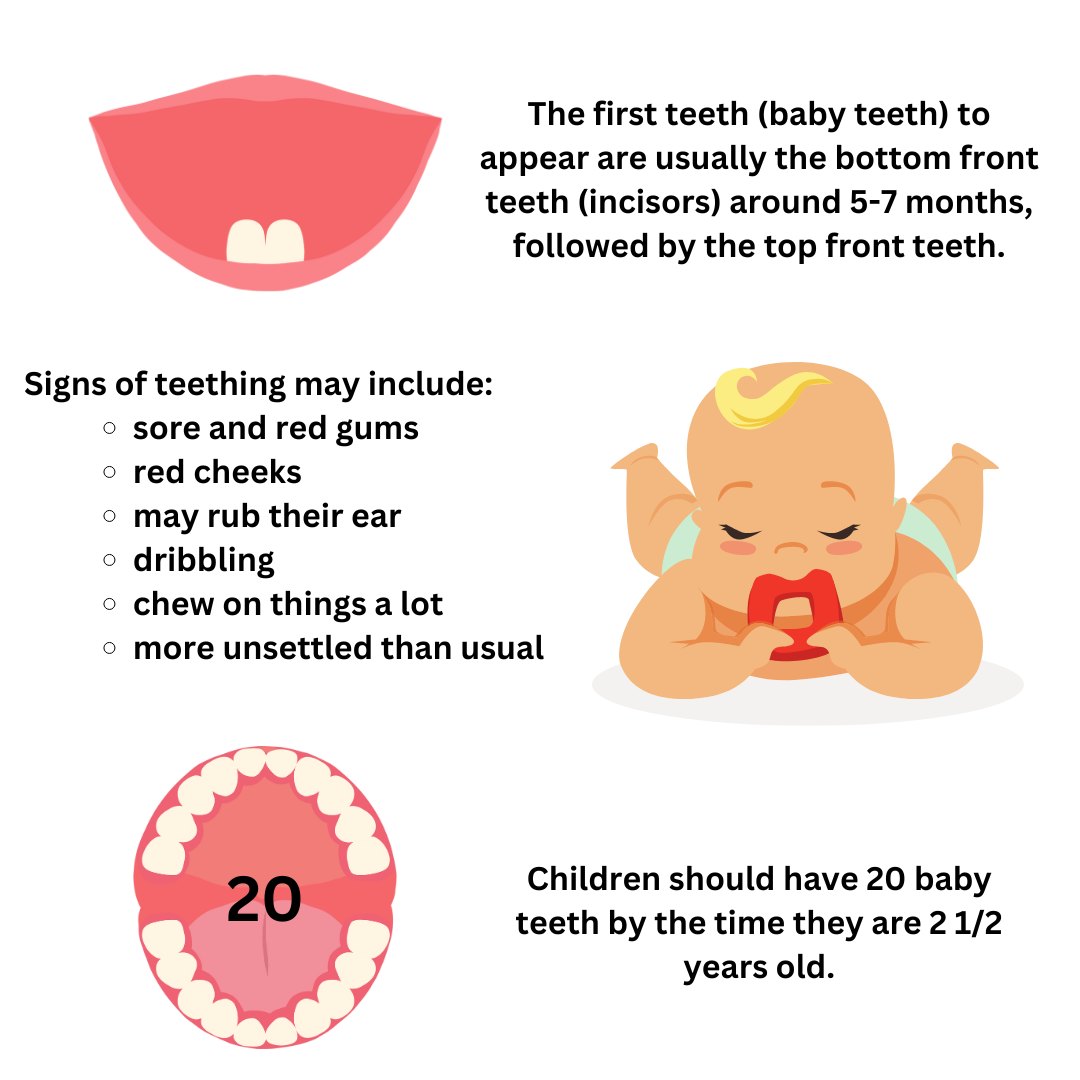 Sore and red gums
Sore and red gums- Red cheeks
- They may rub their ear
- Dribbling
- They may chew on things a lot
- They may be more unsettled than usual
Your child may find it helpful to bite or rub their gums on a teething ring. Sugar free paracetamol can be given to relieve teething symptoms in babies and young children aged 2 months or older.
Speak to your local community pharmacist if you are considering other options for teething, they can give you further advice.
Teething should not cause other symptoms such as diarrhoea and a high fever.
Further information
Locala have created videos to help support you child's oral health:



